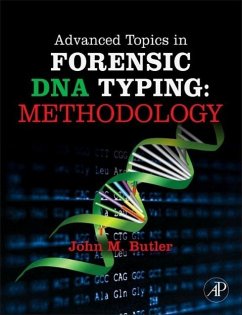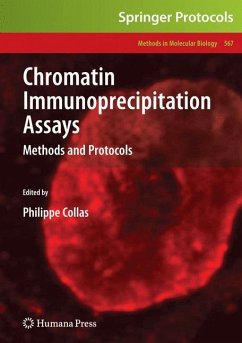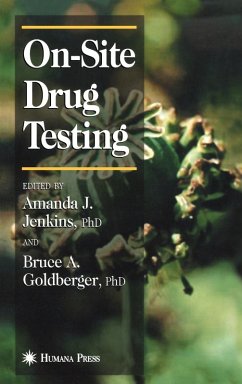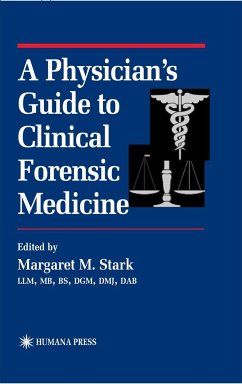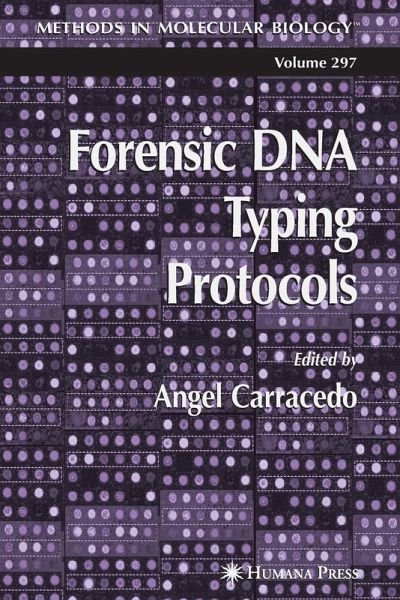
Forensic DNA Typing Protocols
Versandkostenfrei!
Versandfertig in 6-10 Tagen
106,99 €
inkl. MwSt.

PAYBACK Punkte
53 °P sammeln!
A state-of-the-art collection of readily reproducible laboratory methods for DNA identity analysis, including Y chromosome haplotyping, mtDNA, and SNP typing. The book offers well-tested protocols for DNA quantification using real-time PCR on forensic samples and for the determination of the number of amelogenine gene copies. For forensic geneticists, there are readily reproducible methods for species identification, ancient DNA, and pharmacogenetics. Additional chapters address new applications in the forensic genetics lab, such a species identification or typing of CYP polymorphisms for the ...
A state-of-the-art collection of readily reproducible laboratory methods for DNA identity analysis, including Y chromosome haplotyping, mtDNA, and SNP typing. The book offers well-tested protocols for DNA quantification using real-time PCR on forensic samples and for the determination of the number of amelogenine gene copies. For forensic geneticists, there are readily reproducible methods for species identification, ancient DNA, and pharmacogenetics. Additional chapters address new applications in the forensic genetics lab, such a species identification or typing of CYP polymorphisms for the analysis of adverse to drugs. In recent years, the rapid emergence of different markers and technologies for DNA typing has transformed the field of forensic identification with breathtaking speed. In Forensic DNA Typing Protocols, leading forensic geneticists from around the world describe in step-by-step detail the cutting-edge laboratory methods they now use for DNA identity analysis, including Y chromosome haplotyping, mtDNA, and SNP typing. The book offers well-tested protocols for DNA quantification using real-time PCR on forensic samples and for the determination of the number of amelogenine gene copies. Additional chapters address new applications in the forensic genetics lab, such a species identification, ancient DNA, or typing of CYP polymorphisms for the analysis of adverse to drugs. The protocols follow the successful Methods in Molecular Biology series format, each offering step-by-step laboratory instructions, an introduction outlining the principle behind the technique, lists of the necessary equipment and reagents, and tips on troubleshooting and avoiding known pitfalls.
Up-to-date and highly practical, Forensic DNA Typing Protocols captures and makes practical for all laboratories the whole array of new technologies and techniques that have revolutionized forensic science.
Up-to-date and highly practical, Forensic DNA Typing Protocols captures and makes practical for all laboratories the whole array of new technologies and techniques that have revolutionized forensic science.





